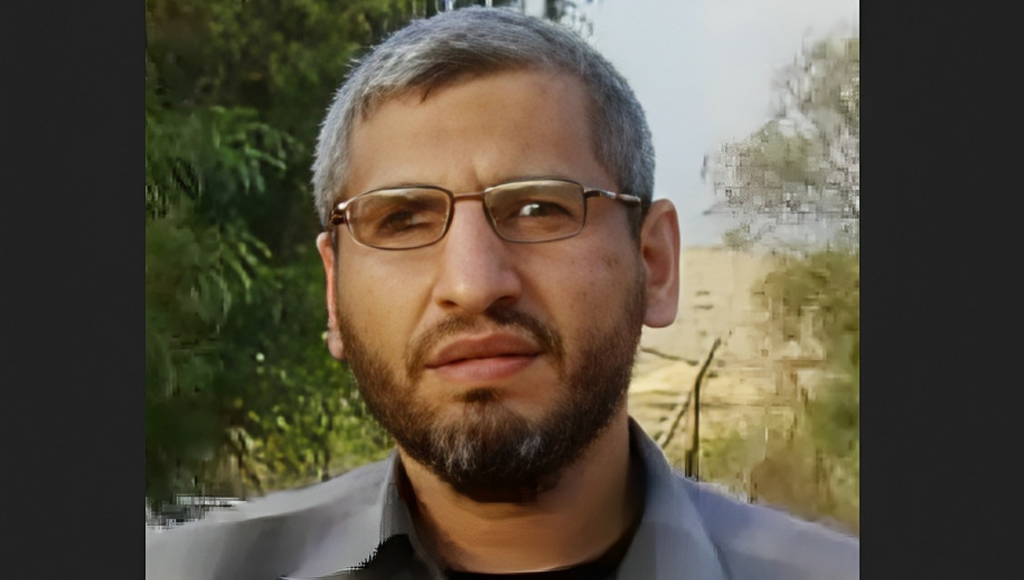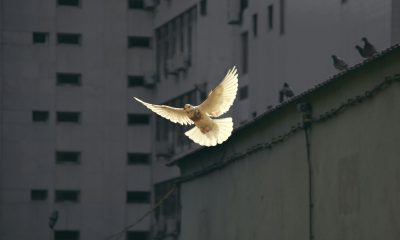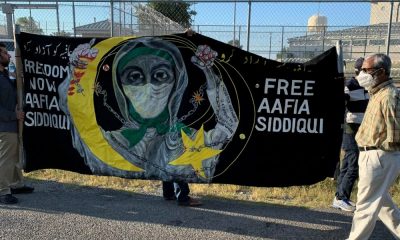The Israeli genocide bagged perhaps its most elusive Palestinian victim with the confirmed assassination of Hamas military commander Muhammad Daif. An extremely shadowy but influential presence in the Gaza Strip for a quarter-century, this wily, resilient operator played a fundamental role in Hamas’ evolution from an originally modest insurgency to a force capable of challenging Israel in sustained warfare.
Daif, or Abu Khaled Muhammad Diab Ibrahim Masri, has been at the top of Israel’s hitlist for over two decades, yet, so elusive a figure was he that during that period no remotely current photograph of his was available. This was ironic for a man who, as a student in the 1980s, had shown a passion for theatre and even set up an acting troupe, whose plays circled themes of Palestinian resilience and resistance. Upon joining the emergent Hamas group, however, Daif withdrew to the shadows, participating in militancy against the Israeli occupation until the low profile that would mark his career.
A Life in the Shadows
Given Israel’s invariable vilification of opponents, of course, Daif would be portrayed in coming years as a spectral figure haunting the hapless ethnostate’s cosseted sons. By contrast, he enjoyed a legendary reputation among his compatriots. His nickname, Daif or “guest”, referenced a life on the run, as the guest of one compatriot or another. Clearly, there were a great number of willing hosts among the Palestinian populace given how long the Hamas military commander was able to keep this up: a reflection of widespread opposition to Israeli occupation and support for whatever resistance could be mustered.
Keep supporting MuslimMatters for the sake of Allah
Alhamdulillah, we're at over 850 supporters. Help us get to 900 supporters this month. All it takes is a small gift from a reader like you to keep us going, for just $2 / month.
The Prophet (SAW) has taught us the best of deeds are those that done consistently, even if they are small.
Click here to support MuslimMatters with a monthly donation of $2 per month. Set it and collect blessings from Allah (swt) for the khayr you're supporting without thinking about it.
Though he had briefly been arrested on Israeli insistence by its Palestinian collaborators in 2000, Daif was soon released as another revolt began against the occupation, and in 2002 he took over the Hamas military command. His predecessor Salah Shihadeh had just been assassinated -along with his entire family and neighbors- by Israel in circumstances, during ceasefire talks, that even a neoconservative Washington considered excessive. These would, of course, become not only a signature of Israeli policy but even a staple of the United States’ emerging “war on terror”. But even in a period where more and more states used airstrikes to target their opponents with abandon, Daif was an extraordinarily common, and, for the Israelis, maddeningly elusive target. An early strike two months after Shihadeh showed him emerging drenched in blood from the wreckage of a vehicle. Another strike in the summer of 2006 reportedly injured him badly enough to require surreptitious treatment across the Sinai border.
Meanwhile, Daif helped transform Hamas’ military wing from one that had largely focused on hit-and-run attacks -such as the assassinations of soldiers and, more controversially, suicide attacks in Israeli cities- into one that could engage the Israeli military in drawn-out skirmishes and battles. It was under his leadership that Hamas also developed rockets, which would be frequently fired at Israel in response to its attacks on Palestinians. One factor in this was Iranian expertise and resources, though these were often vastly exaggerated by an Israel that sought to reduce Hamas to an Iranian proxy rather than an organic movement. Recent information has confirmed that most of Hamas’ arsenal was locally produced; unsurprising given the number of engineers in the movement.
During the protracted Israeli blockade and siege on Gaza -one that was punctuated with mass assaults in 2008, 2012, and 2014- Hamas’ unexpectedly improving military capability became clear. This was most obvious during the summer 2014 Israeli assault, where the Palestinians were able to hit back far more effectively than had been the case five years earlier. This did not go unnoticed in Israel, which has always been extremely sensitive to losing personnel, and instead resolved on a blockade punctuated with occasional massacres. The 2014 campaign left its mark on Daif, who lost much of his family in yet another Israeli strike.
In keeping with his pattern, Daif remained in the shadows, severing contact with most of the outside world; even the father of his martyred wife, it was reported, had only met him once, when he had proposed. Instead, he focused on improving Hamas’ military and increasing coordination with other militant groups. On occasion, Hamas would launch rockets, notably during the 2021 Israeli assault on Jerusalem’s Aqsa mosque. But the draining effect of the blockade and Israel’s own freedom to act without international repercussions -such as the wholesale massacre of a Palestinian protest “march of return” in 2018- lulled Benjamin Netanyahu-Mileikowski’s regime into a sense of impunity. This was shattered in October 2023 when the Palestinians, led by Daif’s Hamas troops, mounted a devastating hostage raid that caught the occupation by surprise.
Martyrship Status Confirmed
Israel responded with the first of several massacres to herald a full-scale genocide. Inevitably along with an enormous expansion of its strikes and the massacres of tens of thousands of civilians, it occasionally struck gold. In summer 2024 Israel reported that it had also killed Daif. Hamas, who are usually prompt in confirming casualties, did not confirm Daif’s assassination until last week, six months later. Daif was confirmed to have been slain in the past year, along with his second-in-command Marwan Issa, their aides Ghazi Abu-Tumaah and Raed Thabit, and field commanders Ahmad Ghandour, Ayman Noufal, and Rafai Salameh. They join a long list of Hamas’ “caravan of martyrs” that includes, in the last year alone, its top-ranked leaders Saleh Arouri, Ismail Haniyeh, and Abu Ibrahim Sinwar.
Given Hamas’ typical promptness in congratulating “martyrs”, why the belated confirmation for Daif’s assassination? It is possible that he only just succumbed to mortal wounds sustained in the summer. Conversely, it is possible that he had already lost his life in 2024 and that, unusually, Hamas kept it a secret until the short-lived ceasefire of winter 2024-25. If the latter is true, it is an indication of Daif’s reputation in the group that his removal would be thought to have an unusually sharp blow on morale. Of course, Hamas, like other Palestinian and Muslim groups, sees its casualties as martyrs. But after a quarter-century of dodging death with positively feline dexterity, the slaying of Daif would be a shock to even the famously resilient people of Palestine.
Related:
– Israeli Assault On Lebanon Kills Hassan Nasrullah: A Look Back On The Politics That Shaped His Leadership
– A Year of Being Witnesses to Genocide: Psycho-Spiritual Perspectives To Help Grapple With Dissonance And Overcome Complacency


 #Islam1 month ago
#Islam1 month ago
 #Islam1 month ago
#Islam1 month ago
 #Life1 month ago
#Life1 month ago
 #Islam1 month ago
#Islam1 month ago
















